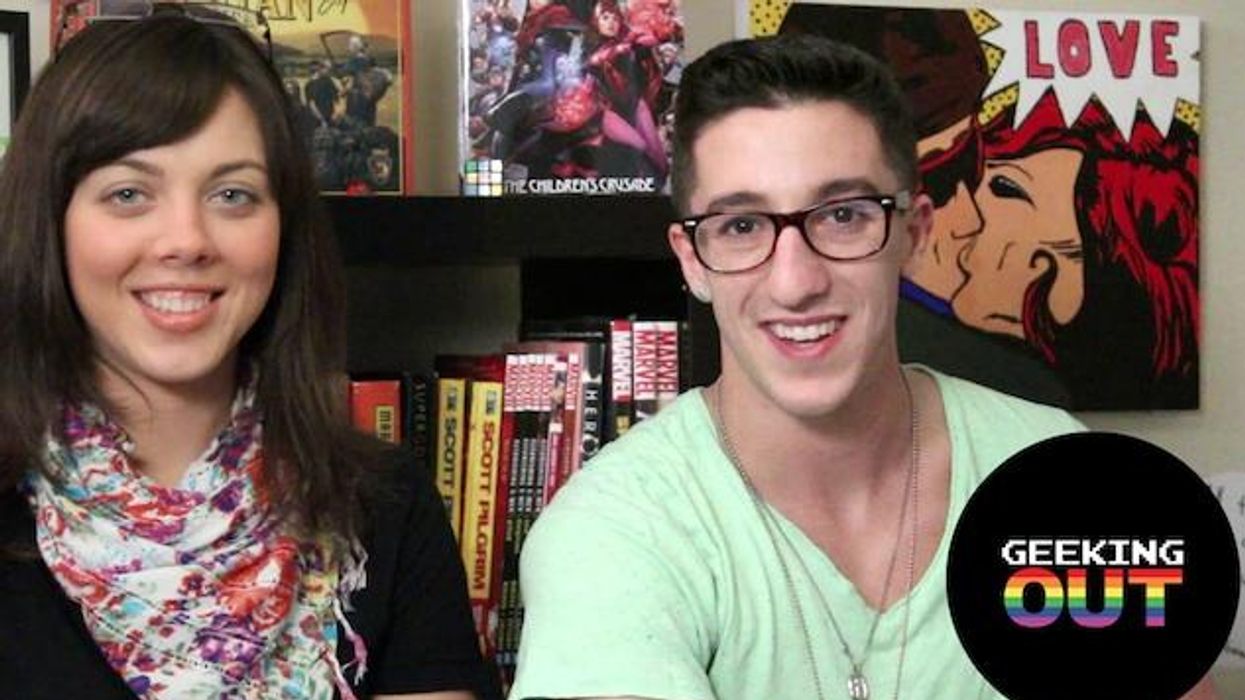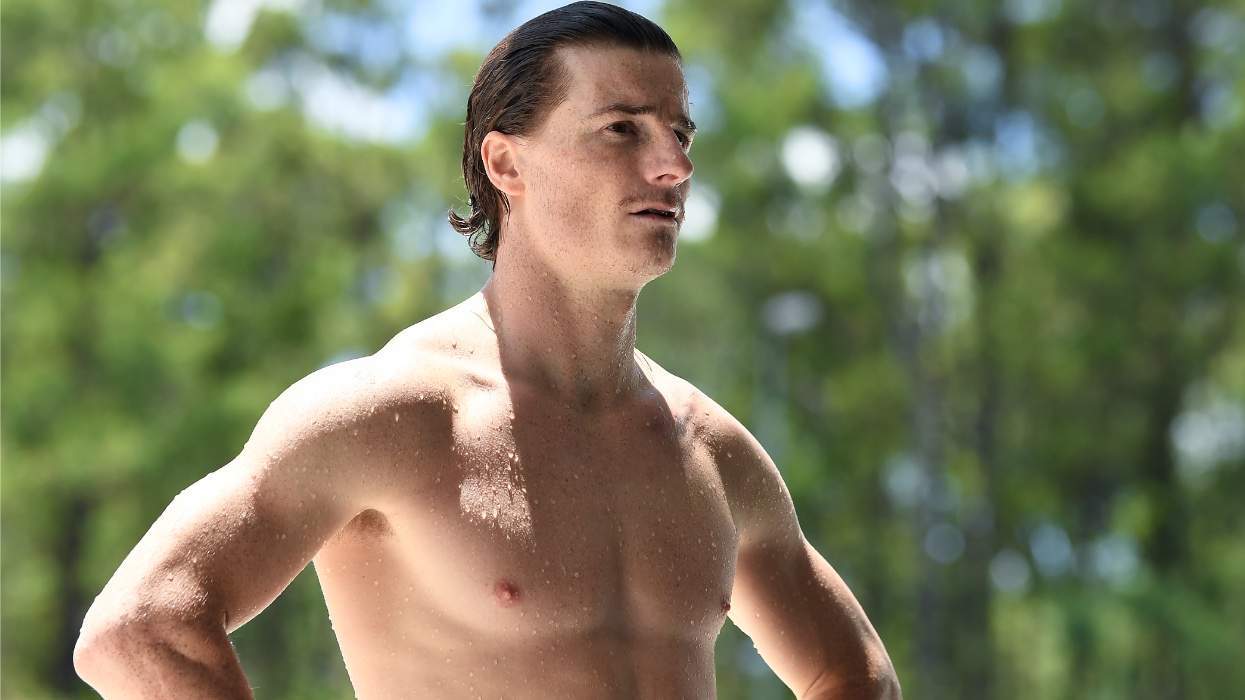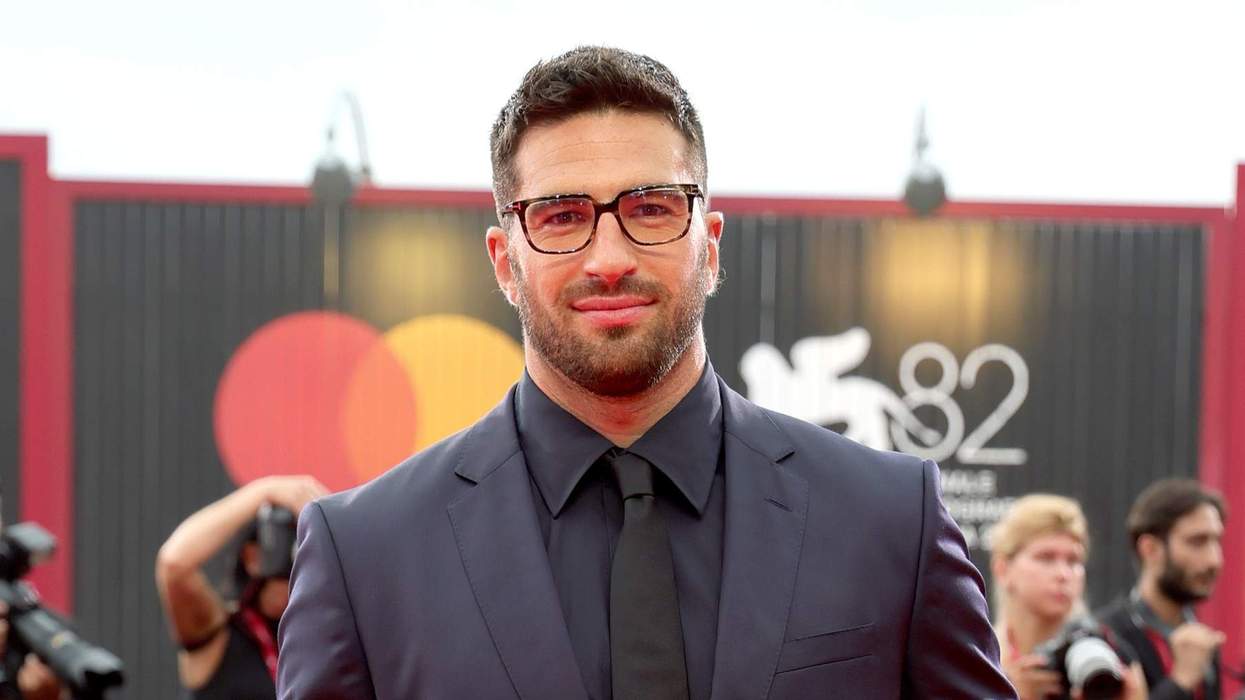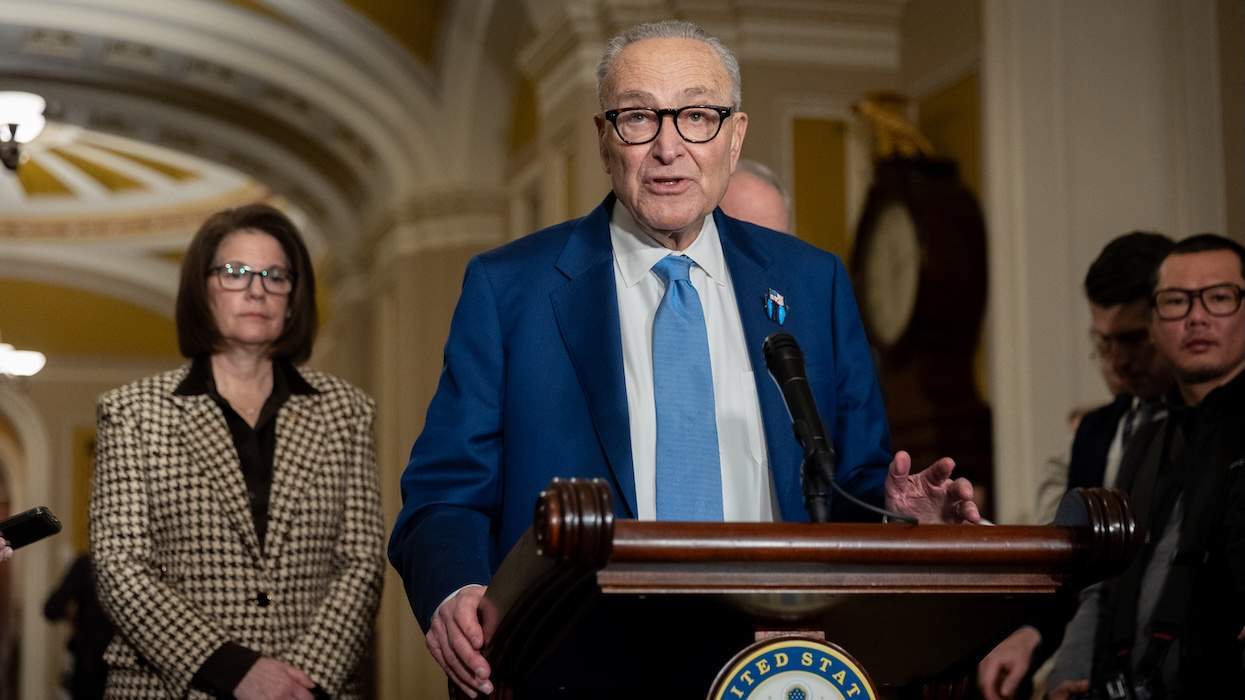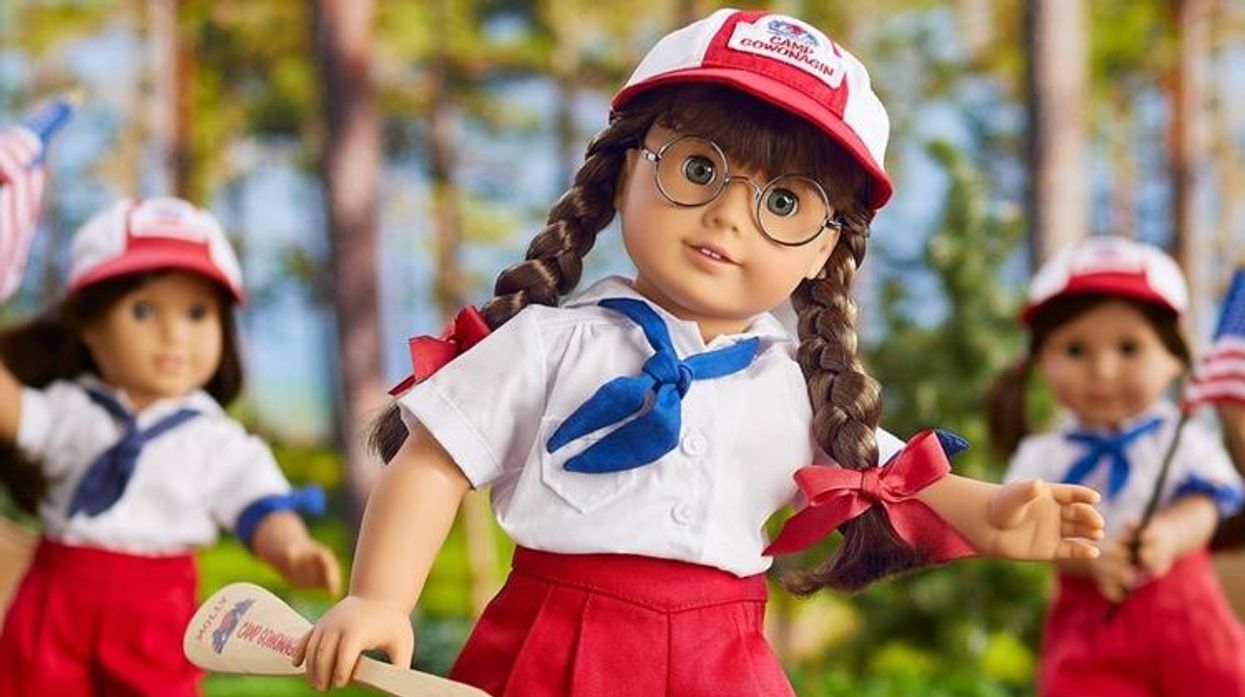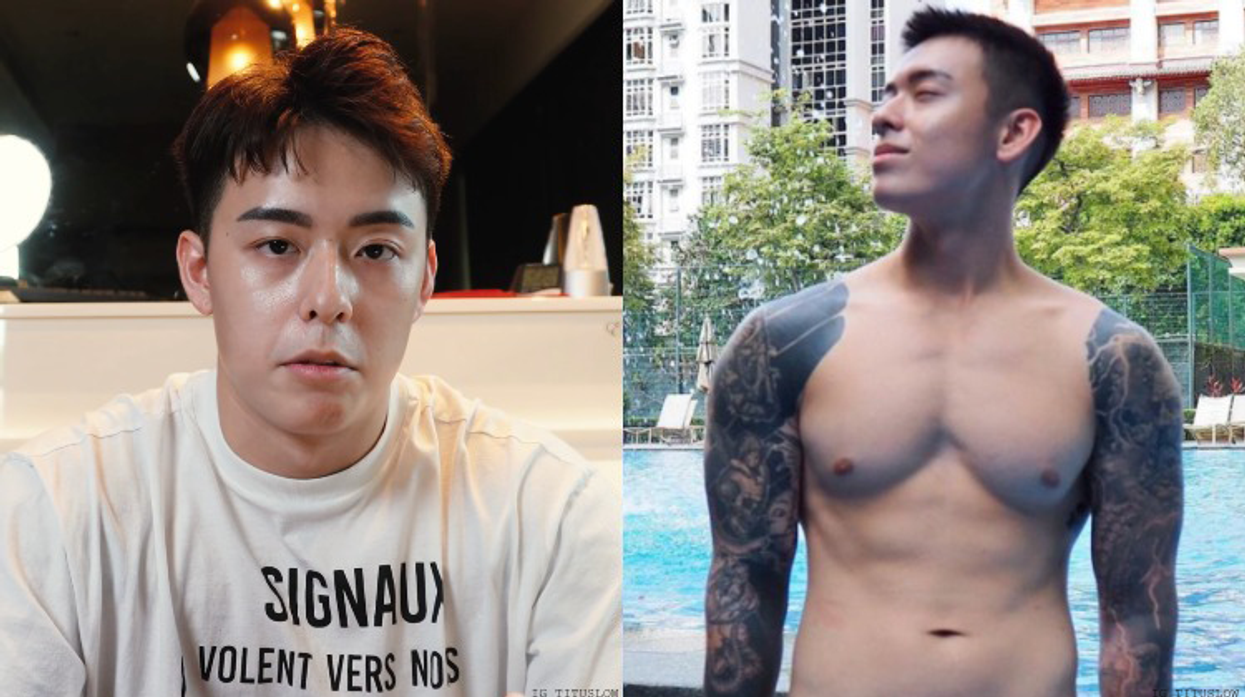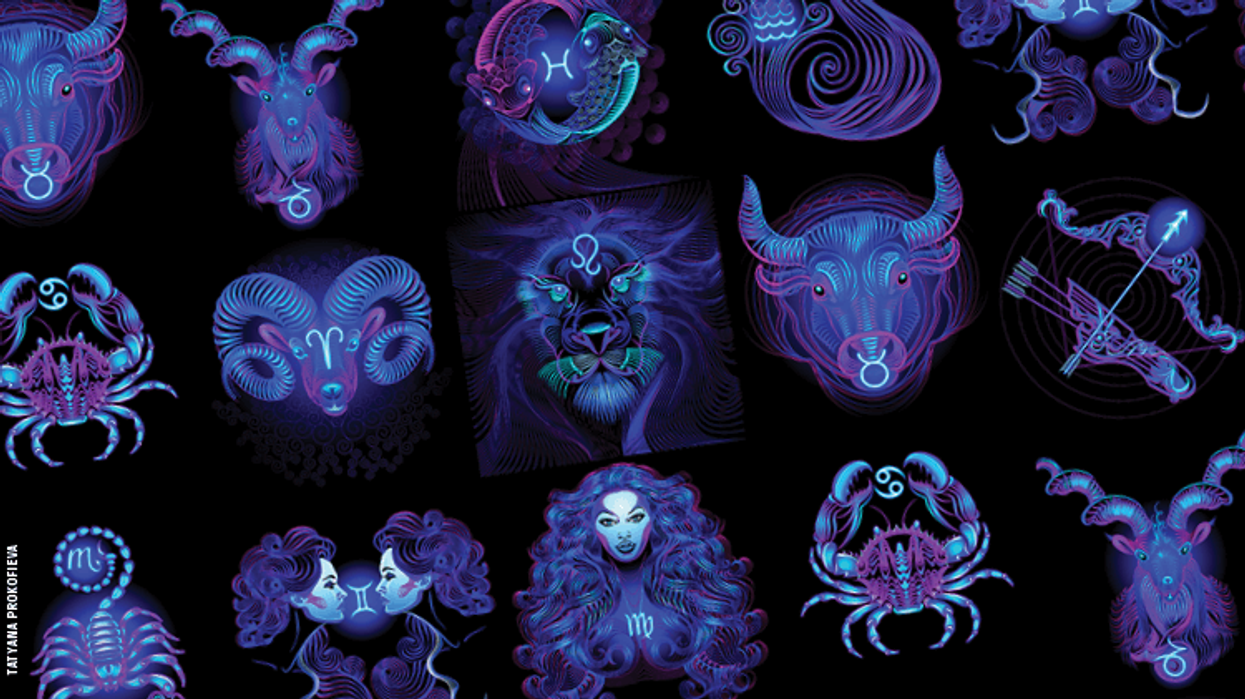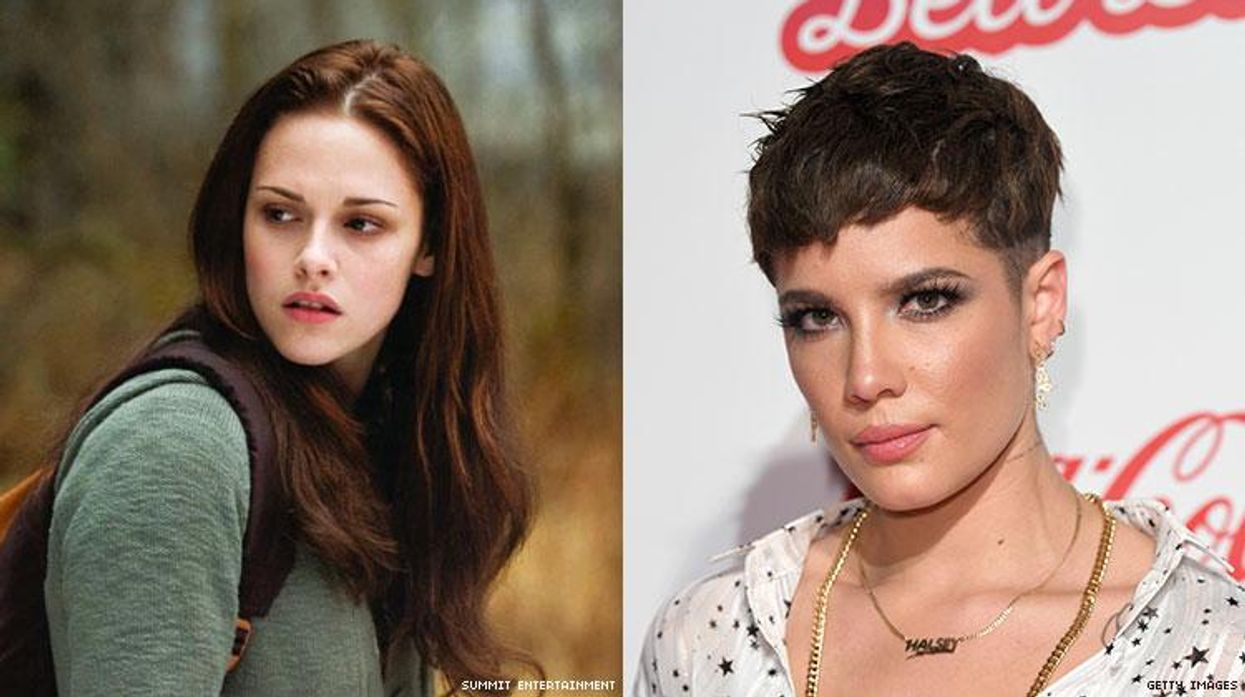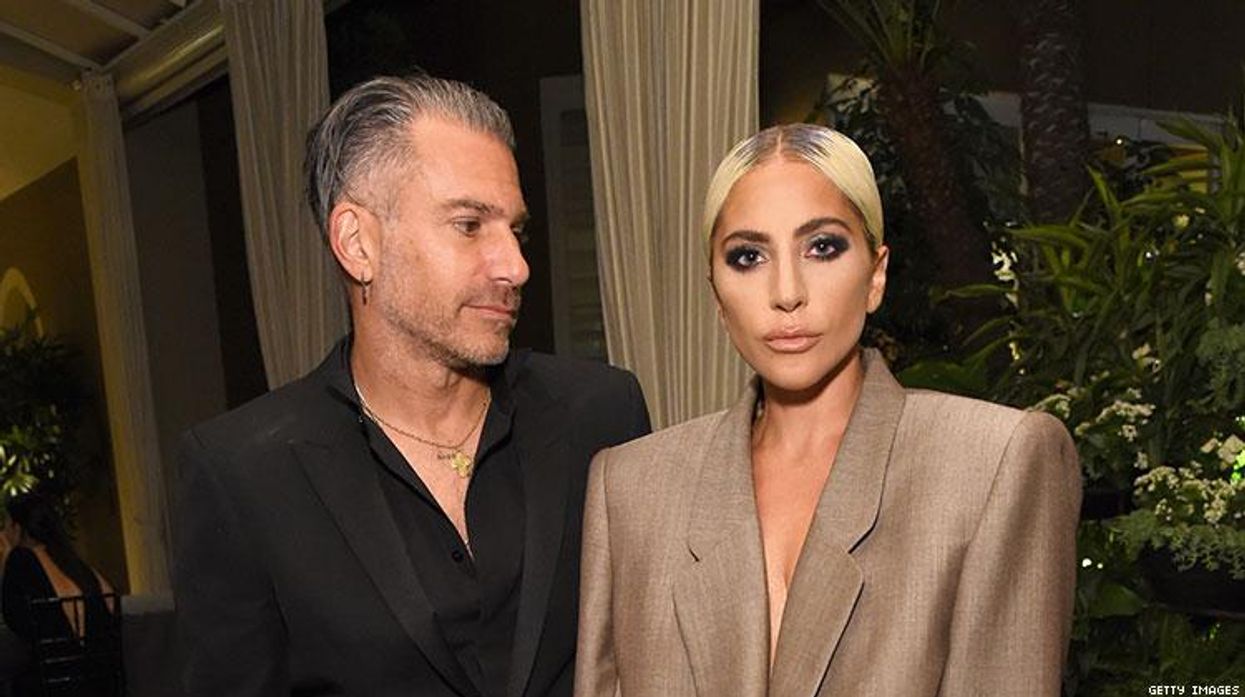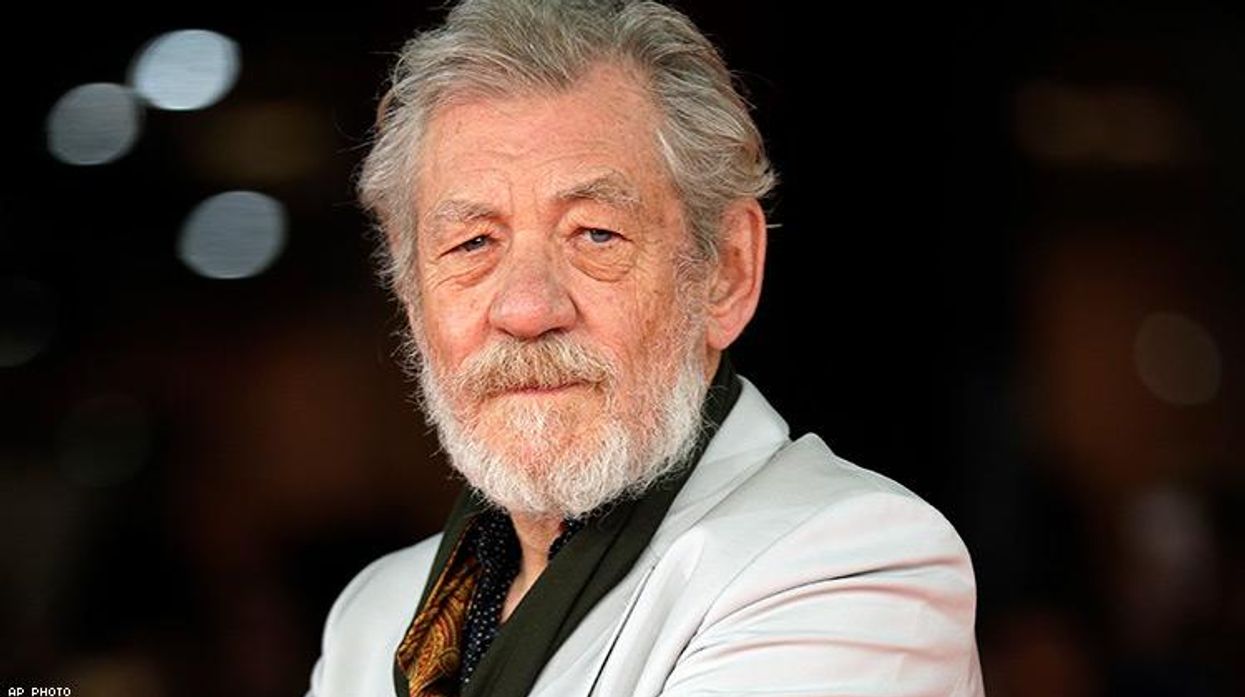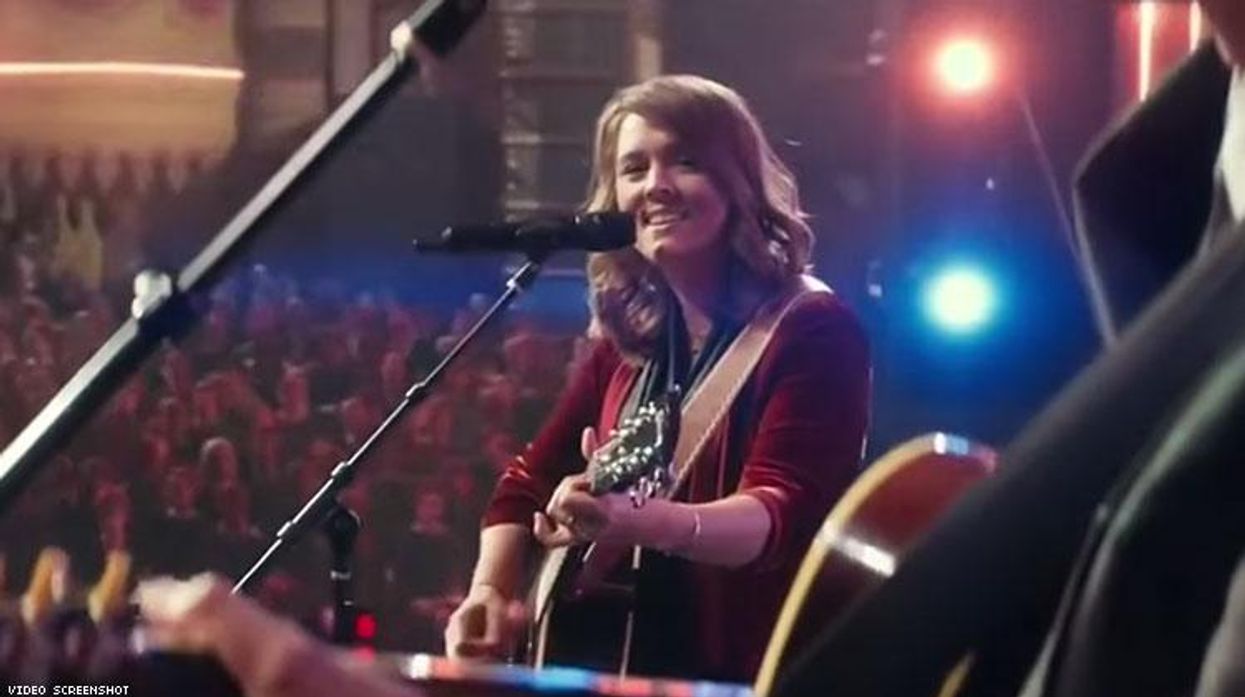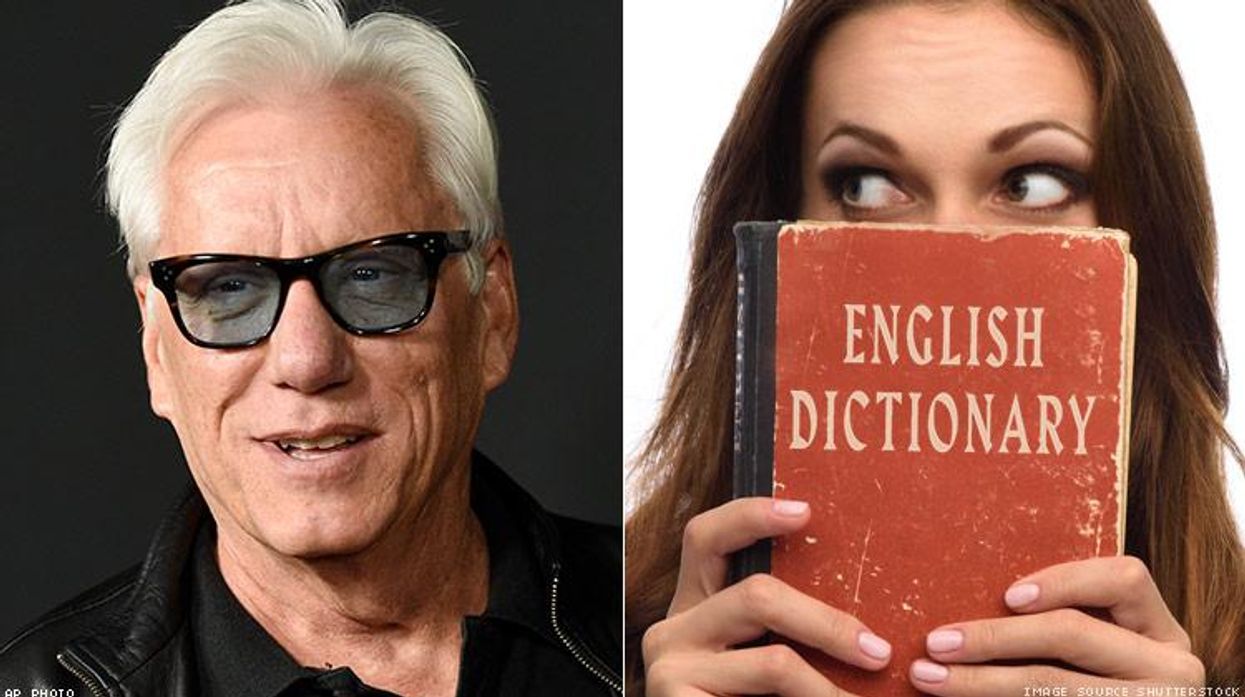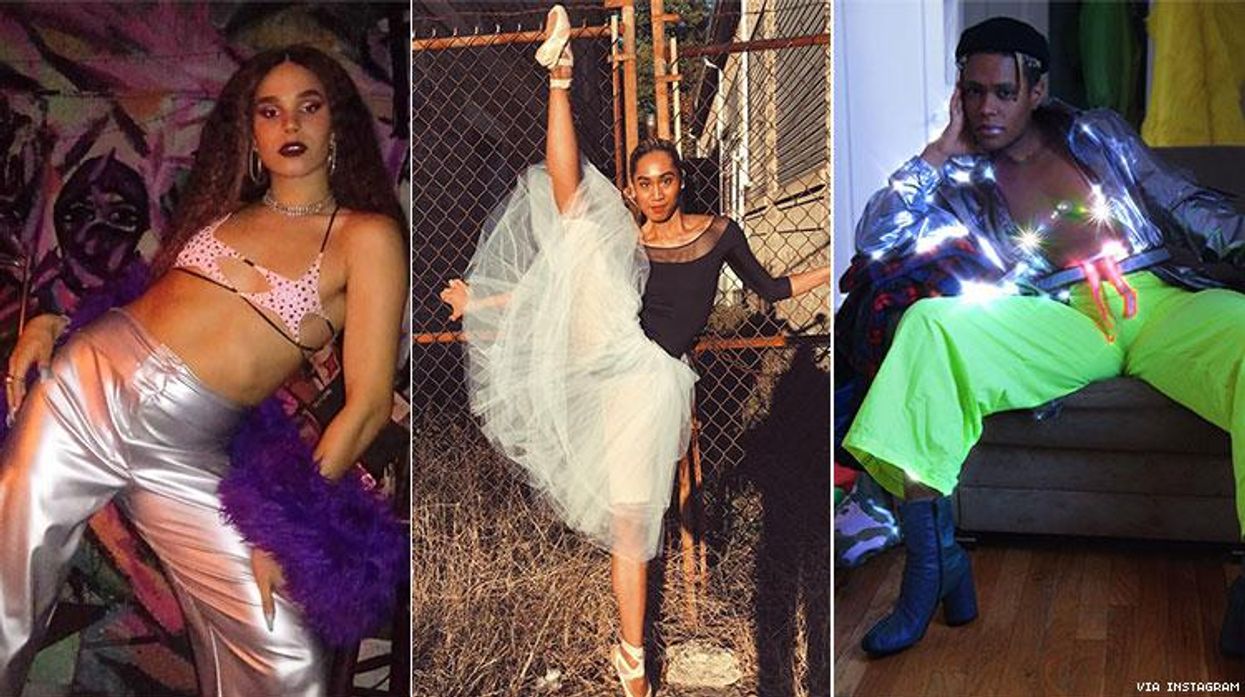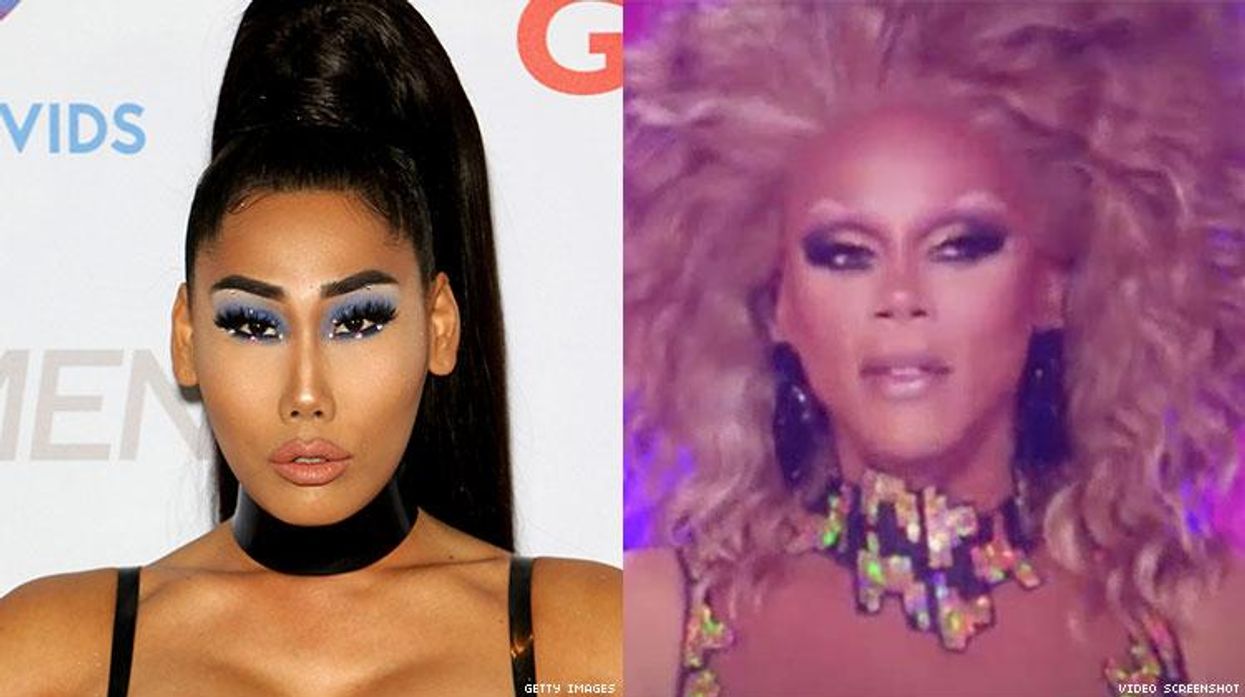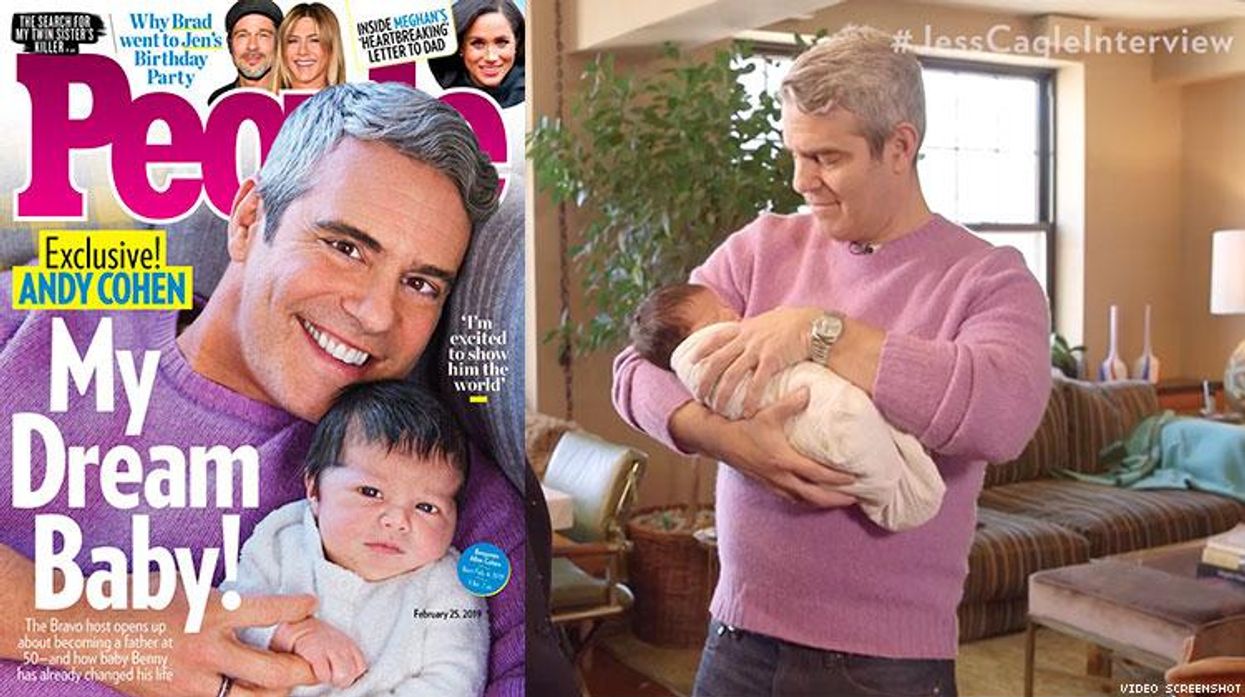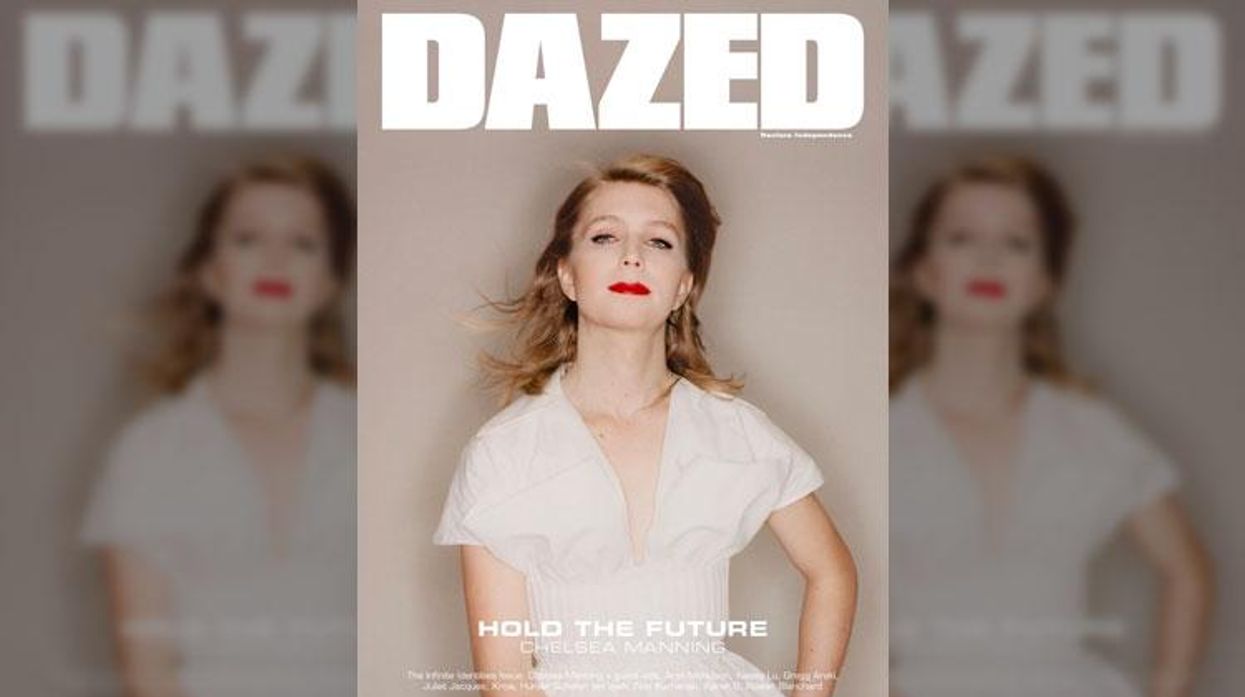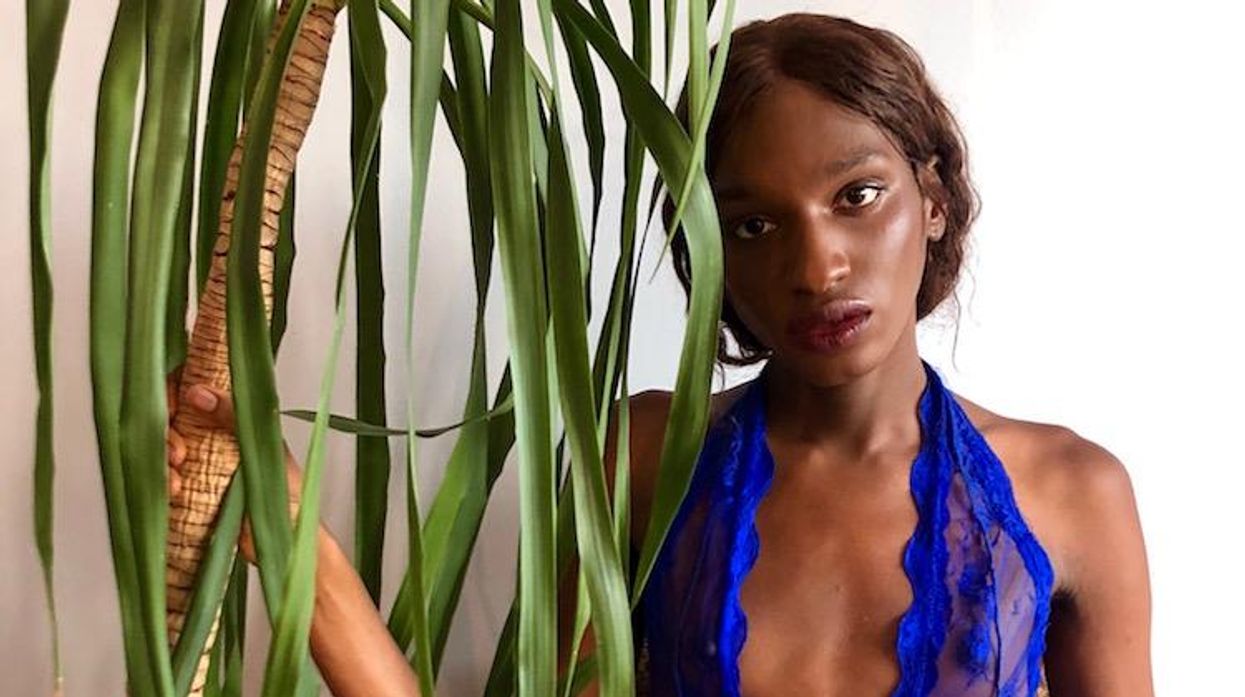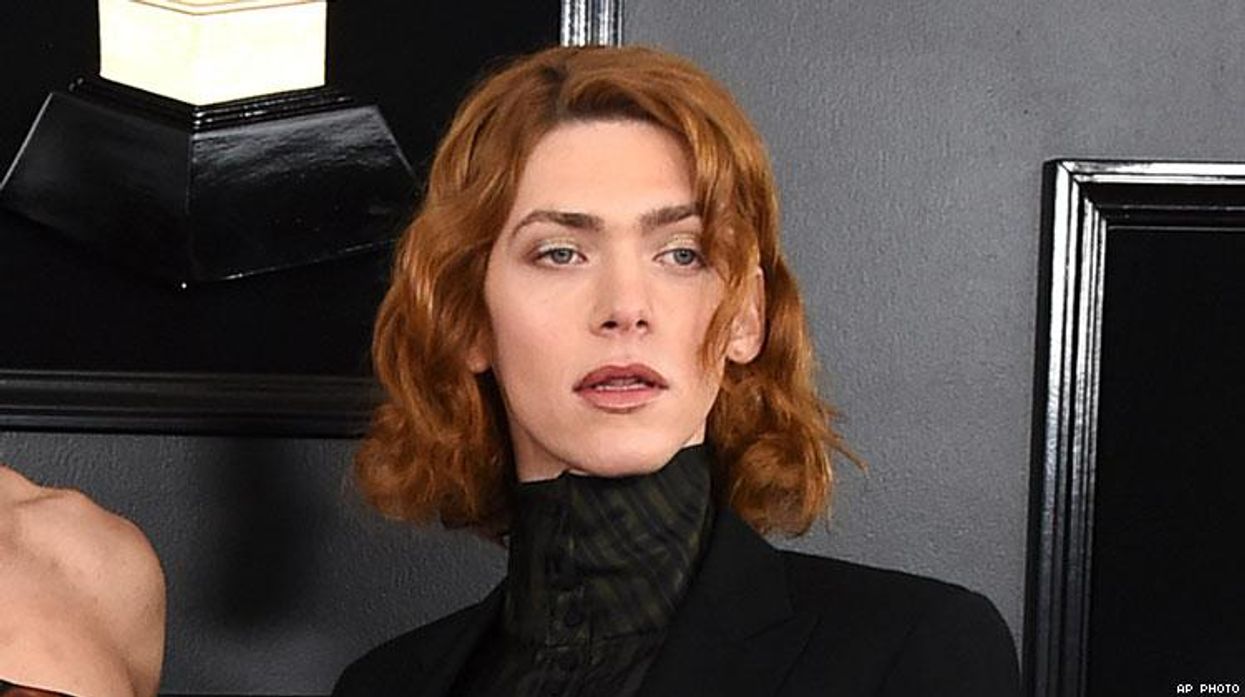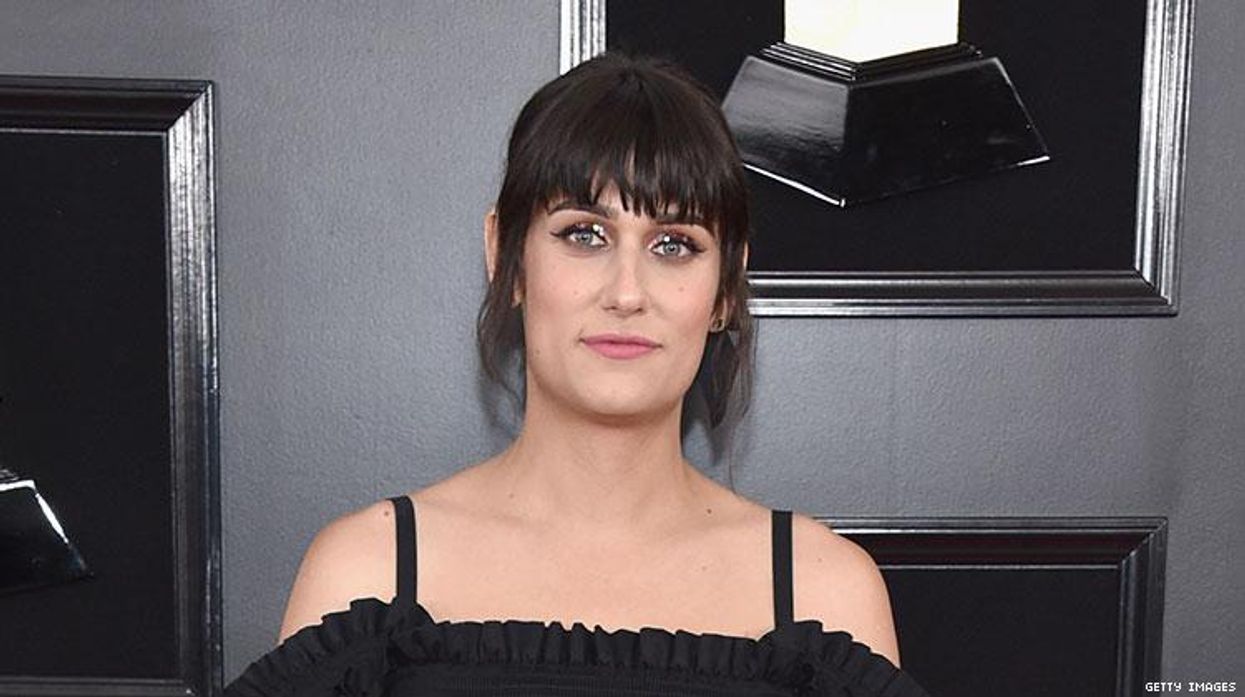LGBTQ vloggers Becca Canote and Neil McNeil lounge in McNeil's West Hollywood apartment looking sharp and camera ready. For this installment of their popular web series, the two have something personal to share: they're coming out.
"I'm Neil," McNeil says.
"And I'm Becca," Canote says. "And this week we are--well, we have some confessions to make."
"We wanted to sit down with you guys and tell you all about how we came out of the closet... as geeks!"
Canote and McNeil host Geeking Out, a new web series about life as a gay geek. It is one of eight new web series from Geek & Sundry, an online media platform catered to the comic book collecting, Pokeball wielding culture. The site was founded by the famed Felicia Day, also known as The Queen of Comic Con.
Though the brand's vlog channel has only been running for two months, Geek & Sundry Vlogs already has 30,000 YouTube subscribers. Geeking Out, which premieres a new video every other Friday, averages 20,000 views per video, of which they have four.
Sure, the series is aimed towards the geek niche (their pilot, "Crackship Showdown," is hard to get into if you don't Netflix Doctor Who or Buffy the Vampire Slayer), but videos like "The Trials and Tribulations of Geek Dating" and "Coming Out as Geeks... Now With More Wine!" has something for everyone: wit, alcohol and adorkability.
We sat with Canote and McNeil to talk about their work's inspiration, their path to geekdom and the parallels of being geeky and gay.
OUT: So how did Geeking Out come to be? What made you think up the concept, and what was the application process like?
McNeil: I was working for Geek & Sundry when they vlogs channel was in the beginning stages, and it was my job to scout talent on YouTube for unsigned personalities. One of my jobs was to find "gay geeks", but when I couldn't come up with anything substantial I called Becca on one of my lunch breaks to complain about how there are no gay geeks out there, and she was just like "Dude, why don't we do it?" So that weekend we came up with an entire pitch, plotted out episodes to do, and just got everything ready to present to the heads of the channel that Monday.
Canote: A few days later, Neil sent me a text that read, "So how do you feel about coming to LA once a month to shoot our vlog?"
You two clearly have a good back-and-forth on camera--good chemistry. How do you know each other, and why do you think you work so well together?
Canote: Neil and I met at WonderCon 2012, when he was a G&S. When I started working as an intern for Sword & Laser--a show on the first season of G&S--a few weeks later, we began mutually internet creeping one another's Twitters & Tumblrs, retweeting and later tweeting back and forth about out mutual love for BAMF heroines like Kitty Pryde & Jean Grey, all things Marvel related, and as our continued and definitely unhealthy devotion to hate-watching Glee. Our on-screen chemistry has grown out of this shared base of interests, as well as from the simple fact that there aren't many out and obvious gay geeks.
McNeil: It's hard to find other geeks in the LGBT community, so when you do find another unicorn in the bunch you instantly gravitate to them and just geek out about your shared subculture. Plus Becca's kind of the stone cold rock out of the two of us, and I'm fully aware I'm the spazzy glitter bomb. We balance each other out.
Why do you think it's important for Geek & Sundry to have a show like Geeking Out?
McNeil: I think it's important to the entire nerd community, not just Geek & Sundry. Like I said, there's no strong presence for LGBT nerds. You have a sporadic few gay characters in mainstream comics, or you have independent publishers who do graphic novels that don't really sell outside of the LGBT community, but I feel like people are always shocked to find out that I'm gay and a geek. People don't really see the two subcultures meshing well, when really it's the opposite. Stories like The X-Men and Superman are all about secret identities and being different in a society that shuns them, and I feel like gay geeks really take stories like that to heart and are affected by them on a different level.
Canote: For us, starting Geeking Out wasn't just about giving LGBTQ geeks a voice on the channel, but about showing to the larger geek community that being LGBTQ and being mainstream geeky aren't mutually exclusive.
What are your earliest memories coming to terms with being a geek? Do they at all parallel your experience coming into your own sexual identity?
Canote: We actually discuss our geek "coming out" stories in one of our recent episodes, detailing how for Neil and I, our identity as geeks was something that we embraced and that our families let us develop from a very early age. I remember being so incredibly excited when my parents decided that I was finally old enough to watch Star Trek II: The Wrath of Khan because Star Trek, Khan, and quotes from that movie were a part of the daily vernacular of my childhood.
By the time middle school rolled around and I started becoming aware of my sexuality, I was a geek and being a geek was me, so I simply became geekier as a way of diverting all attention away from my tween angst about how I felt about girls. Everyone knew and generally seemed to like (or at least tolerate) bookish Becca the Geek, but Becca the Tweenage Maybe Lesbian? I didn't even know her, so I buried that side of myself as deep as I could, and used my already accepted geekiness as a mask to hide that part of myself.
McNeil: I remember being 6 years old and watching Buffy the Vampire Slayer with my mother on Monday nights, and then on Wednesdays she would take me to the 7-Eleven by my grandma's house to buy me the new issues of the Sabrina the Teenage Witch comics--don't judge me. It was always something that was a part of who I am and I never really thought of it as being something that sets me apart, which is actually what I went through when I came out. It was more a matter of telling everybody else that I was different, and I find myself coming out to people as a geek all the time now. I can't have a normal first date with a guy without having a conversation centered around my love of comics.
Generally speaking, why do you think geek culture meshes so well with gay culture?
Canote: While both cultures have become generally accepted and even championed for by the mainstream in recent years, geek and gay culture are both inherently outsider groups who grew into the visible cultures they are today because of being looked down on and ostracized. Geeky outlets such as comics and sci-fi novels could tell stories about worlds where questions of race and culture were no longer a question long before that was conventionally acceptable, something that I believe many members of other "misfit" cultures were drawn to long before either the LGBTQ or geek communities became accepted. In my own experience, franchises like X-Men and Buffy the Vampire Slayer were central to my preteen and teenage experience, as the characters I was drawn to were the teenagers who were dealing with both the normal teen experience and something like developing mutant powers or becoming the slayer that was central to their own identity, but that they had to keep hidden from the people around them. Just from talks with other gay geek friends and reading the comments left on the Geeking Out videos, I know that I was far from alone in this regard, with others citing every other superhero you could imagine as being a figure who helped them sort out their sense of self and identity when they were younger.
What has the response from viewers been like? How do you maintain a dialog with them?
McNeil: The response so far has been amazing. The golden rule of the Internet is "don't read the comments", but we kind of threw caution to the wind with these first few videos and have been actively engaging the viewers in the comments, and their reviews have been phenomenal. It's strange, because a lot of the comments have been expressing how something like this has never been done before and that the nerd community needed content like this, so it's weird to think that people have been waiting for an LGBTQ voice to pop up in the geek world.
What is the geekiest thing about you?
Canote: Oh jeez...that's a tough one, but to keep it simple, I have to say that the geekiest thing about me is my love of what I call "9-to-5 Cosplay." Drawing inspiration from blogs like Console to Closet, I have a whole mess of outfits that are inspired by my favorite video game and comic book characters, and while they aren't obviously costumes, I always feel super badass when I go to work as say, "Thor or Luna Lovegood?" Even if I'm the only one to know where the outfit's inspiration came from, I love looking for pieces that fit my personal style but also embody the feel of my fictional favorites. The phase I went through when I tried to get everyone to call me Jean after Jean Grey is definitely second. It was eighth grade. I thought it was really cool. It never caught on, much to my dismay.
McNeil: We could go on for hours just on the different fandoms we're a part of and what we geek out about, but I'd have to say my tattoos. Right now I have six, and each of them ties back in some way to the big geek that I am at heart. I've gotten a few comments in the first few vlogs asking what the tattoos on my arm are or what they mean, so I actually went and shot an entire video just going through each tattoo and explaining its significance.
READ MORE ON FOLLOWING PAGE
Do you have a favorite franchise? Why?
Canote: While X-Men was my first comic book franchise and Star Trek was my first sci-fi series, the series I will always come back to and where I feel the most at home is definitely Harry Potter. It was the first series I discovered on my own, the first fandom I got really involved with, the thing I was willing to wait out in the cold for year after year after year. I remember sobbing myself to sleep on my 11th birthday because an owl with my Hogwarts letter never arrived, but then spent the next day convincing myself that I was stupid to expect an owl because Hogwarts is only for British witches and wizards, and that the American school must do things differently and that I just had to be patient. I'm 23 and believe me, I still haven't given up hope of my letter arriving.
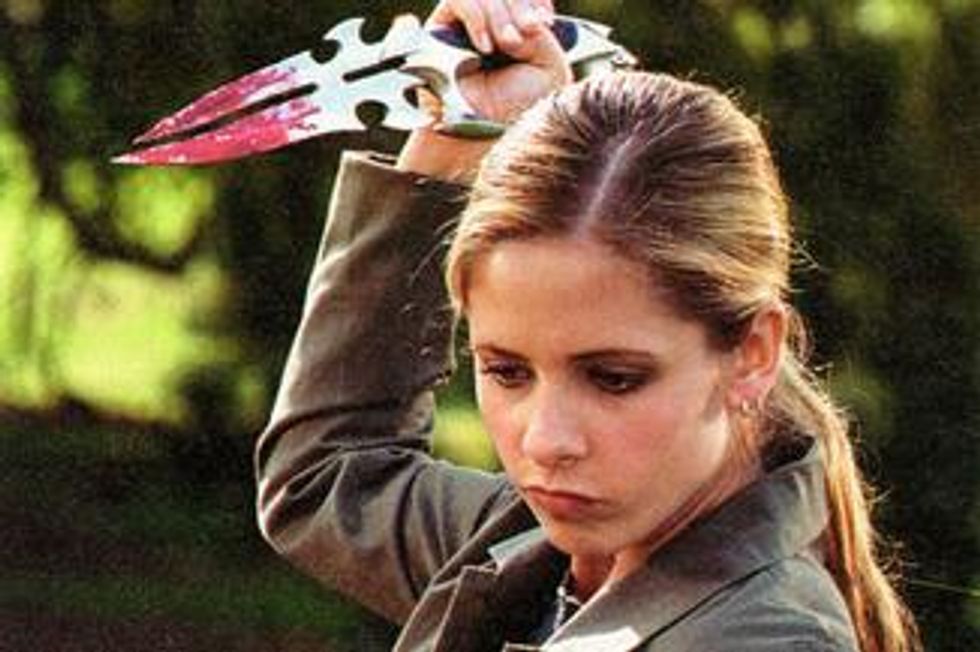
Where do you see the future of the show? Where do you see yourself personally five years down the road?
McNeil: Just from the response what we've received so far, I don't think we're going anywhere anytime soon. We really look up to the big YouTubers out there who have paved the way for this to be a career. Hannah Hart, Grace Helbig, Mamarie Hart, Tyler Oakley. We really want to make content inspired by these folks with out own twist, because they're some of the funniest and most entertaining people on the web. We both have our own personal channels too, and we're using those to create more personal content as well. In five years--who knows? I still want to pursue screenwriting and comedy, and I think this is a great segway into that kind of career path.
Canote: Five years from now, I have absolutely no idea where I'll be. A year ago May, I was graduating from UC Berkeley with no production experience and no prospects, and now I'm a vlogger by night, field producer by day for a boutique production company in the Bay Area. I'd love to still be doing Geeking Out or something like it, since I don't see myself getting any less geeky or any less gay, but I also want to work on producing original scripted content, be it my own or otherwise. I love talking with passionate creators who have stories and worlds to bring to life, so let's say that in five years, I'll be working as a development producer in the new media wing of things who hosts a show or two on the side.
Are there any additional projects you two are working on?
McNeil: Right now I'm taking part in YouTube's Geek Lab down at the YouTube Space LA, where after completing a training course and making six videos in their facilities over the next three weeks, I'll have full access to The Space for an entire year, which is really exciting. Hopefully this will help make the most of my content, and I'll be able to collaborate with some other amazing YouTubers. I'm also constantly writing and coming up with new projects I'd love to produce one day, so maybe this would be a great opportunity to see those through and get some more original content onto my channel. Weirdly enough, I've also been contacted by a few reality shows about this story, so we'll see!
Canote: Right now most of my energies beyond Geeking Out and my personal YouTube channel are focused on my job as a field producer and production coordinator for a Bay Area-based boutique production company. I do everything from errand runs to running field shoots to research and development on the equipment we use every day, all in the name of high quality, high profile live streaming. I'm also developing a series that I plan on shooting entirely on Google Glass, which I'll be getting this summer as part of the Glass Explorers program, as well as pulling out to shoot more stupid B-Roll on the set of Geeking Out. I'm constantly pinging Neil and my other production industry friends with ideas and what if's, so now I just need to push myself to make those what if's into realities in the coming months and years.
Catch Geeking Out's latest below.


